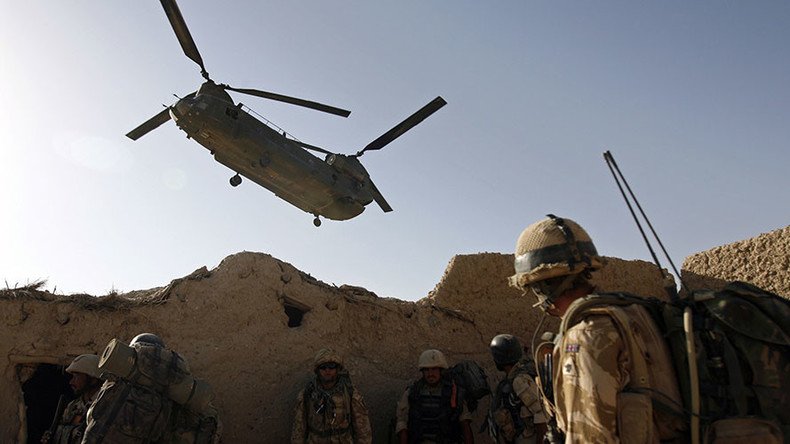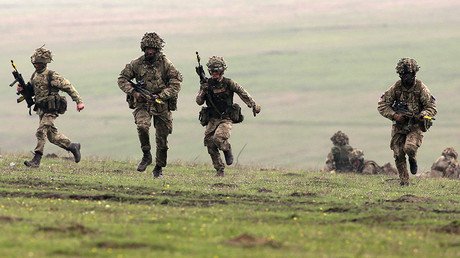The head of the British Army has accused British politicians of creating an illusion of war and misleading the public with unrealistic ideals, accusing them of having “spawned a number of fallacies.”
In their desperate bid to slash funding for the UK’s military services, politicians have pushed the idea that wars can be won through airstrikes, drone warfare, technology and minimal troops, General Sir Nick Carter said.
Speaking ahead of this autumn’s national security review, as the army tries to save an estimated £29.5billion ($39 billion) in ten years, the Chief of the General Staff said the public is being given the wrong impression.
Military services have been forced to fight one another over shrinking resources.
Army commanders believe their vehicle programs will be sacrificed for the Royal Air Force (RAF)’s new fleets of stealth jets and patrol planes, or for Royal Navy shipbuilding.
Speaking at the Richard Holmes Memorial Lecture on Monday, Carter warned that misleading rhetoric over the wars in Iraq and Afghanistan had led to the conflicts being misunderstood by the public, adding war is not always a “choice.”
“We have not been helped by the unpopular campaigns of the last decade or so,” he said.
The Army chief said future wars will not be won with drones and reliance upon proxy forces.
He said he wants to see an end to pumping money into battle tech, and a focus on boosting the Army.
“Wars are won by land forces,” he said.
He fears it has become so unpopular to deploy men and women into the field that money is being diverted elsewhere.

That message is being spread by those in Parliament who have a “desire” to minimise risk in conflict, without real understanding.
Those ignoring war, he said, are “ignoring Trotsky’s observation that ‘you may not be interested in war, but war is interested in you.’”
Naval experts have also blasted the Government for the cuts, as the austerity axe has fallen hard on shipbuilding programs.
Hunter-killer submarines are late in delivery, with three being brought into service out of a proposed twelve.
“Our Armed Services have been run down and underfunded by successive governments over the last 20 years,” former Royal Navy serviceman and UKIP leadership candidate Ben Walker said.
“This is no accident.
“It’s been done to reduce the UK’s ability to defend itself creating a reliance on an EU military. The government use the ‘Strategic Review’ process to legitimately cull the services and its equipment whilst manoeuvring them into a position where they play a small part in an ever growing EU military project, thus reducing the positioning and capabilities of the UK on the world stage.”
“The UK currently spends 2 percent of its gross domestic product (GDP) on its military budget. We need to be spending a minimum of 3 percent just to stand still.”
Carder also claimed high profile military charities could be preventing recruitment, while the Army struggles to attract new troops.
He said there is also a warped impression that specialist forces are “global ‘Robocops’ to target bad guys” and that soldiers deserve sympathy over hero worship.
“While we welcome the vital support of military charities, it’s a challenging recruiting message when they and their events have such a high profile,” he said.
He added fears of “a real risk that soldiers are now seen as victims not as heroes; the focus of public sympathy rather than empathy.”
The Army is 4,000 soldiers below its target strength of 82,000.


